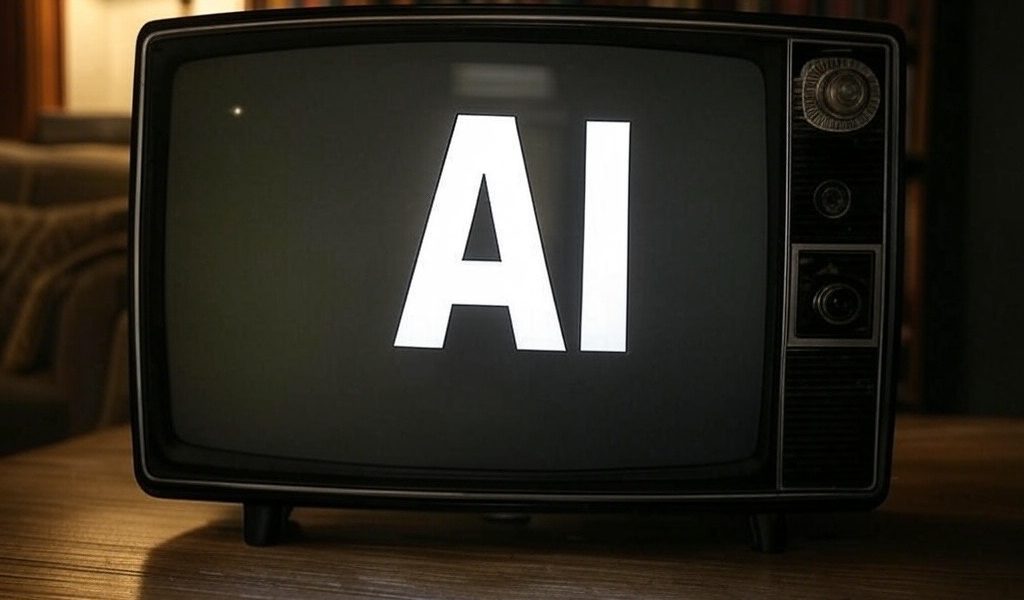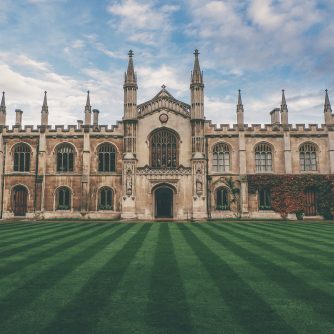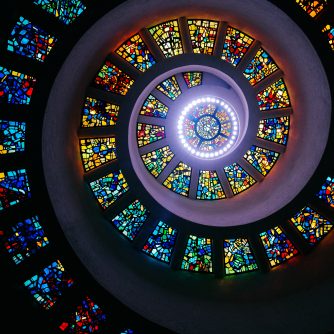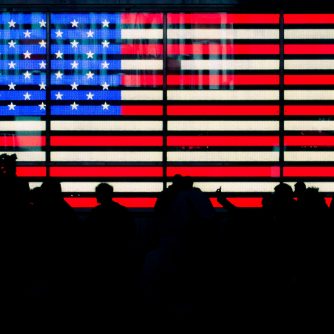“The first ultraintelligent machine is the last invention that man need ever make.”
— Irving John Good, 1965
FOR most of us, we took a deep breath once Donald J. Trump became the 47th president of the United States because the alternative would have seemingly placed us on an inevitable collision course with total Socialist policies made up of wokeism, total sexual and social deconstruction, economic depression, and increased levels of globalism and tyrannical NGO overreach. On a basic level we should be grateful for this stalling of the times. In fact, there are many encouraging factors about another Trump presidency for the nation, the culture and the Church. It may result in overturning many harmful policies which can be detrimental to the overall prosperity of the nation both morally, economically and even spiritually. To be clear, the last factor, spiritually, is not necessarily subject to cultural and political conditions as even in the most oppressive contexts the gospel can and does overcome. Nevertheless, a free society, with all of its hang ups, can facilitate the rapid proliferation of Christian propaganda— essential to the spiritual mission of the Church. Culturally, to use the language of Arron Renn, we may be shifting away from the “negative world” (a cultural and political phenomenon where Christianity is viewed mainly negatively in mainstream culture), and toward a complex admixture of both “neutral” and “positive” cultural sentiment toward Christianity (albeit mostly consisting of nominal or cultural Christianity which I have deemed “Christianism”).
Time will certainly tell what this conservative moment means for the spiritual condition of the nation. But while most Christians are breathing a sigh of relief that significant liberal policies have been abated, at least for now, there are other serious concerns the world and the Church still face. A few days after entering the White House, Donald Trump had a news conference that featured the CEOs of OpenAI, Sam Altman, Larry Ellison of Oracle and Masayoshi Son of SoftBank. They were there to announce the launch of Stargate, a massive AI initiative by the United States government. Stargate will seek to lead the world in artificial intelligence. They will accomplish this first by building massive data centers throughout the U.S. beginning in Texas. These data centers are essential for AI to operate properly and enlarge its scope to the degree that tech leaders envision for the ubiquitous application of AI. So, why is this such a concern? AI already runs everywhere: it controls our street lights, operates on the internet, supports software platforms and makes LLMs possible etc. Concerns over AI are not unknown, however they are often either misunderstood or met with either skepticism, disbelief, or panic. In recent years, this concern has been voiced by more than just “conspiracy theorists” (if that term still holds meaning), it has been raised by some of the very leaders in the AI world including: Elon Musk, one of the founders of AI Geoffroy Hinton, Mustafa Suleyman, Mo Gawdat as well as the very vocal AI alarmist Eliezer Yudkowskyand many others. Even those who are AI enthusiasts have openly admitted to the dangers that AI represents from total loss of privacy to global extinction! Most of the dark visions of the future have to do with world-ending scenarios that could materialize through an out-of-control AI in the not-too-distant future that becomes billions of times smarter than humans and becomes immune to human programming measures designed to reign in AI’s capabilities as well as making it virtually impossible to “unplug” the machines; the “Skynet” scenario!
But AI applications in the more immediate future are likewise concerning. Some time ago, I took part in a private gathering of wealthy folks that put on a Bill Gates event where he was going to speak on AI (the details of how “got in” is not important or remarkable). During this presentation, Gates spoke for over an hour on the emergence of digital and robotic “Agents” that will assist us in every facet of our lives. Like a robotic Siri that never turns off and is jacked into every aspect of our lives— from our medical records, to our business, our emails, texts, phone calls, finances and family memories, these “Agents” will be eventually with us from cradle to grave. Surprisingly I was allowed to ask Mr. Gates a question. I asked him about the dangers of AI, I brought up the concerns of alarmists I knew he was familiar with and key thinkers in robotics including Hans Moravec and the projections concerning a post-human future. To his credit Bill Gates did not dodge my question but ultimately directed me to the recent book The Coming Wave by Mustafa Suleyman.
The consensus today seems to be the same- the dangers of AI are real but, mainly for security reasons, we still need to move forward with AI with ample caution. My aim in writing these articles on AI is not however simply to raise concerns about AI doomsday scenarios but to engage the worldview that I believe undergirds the modern tech revolution especially as we think about AI, Transhumanism and the philosophy of futurism as a whole. In order to accomplish this, we will need to know critical facts, figures, and projections of our technological future and how it relates to the biblical world and life view, both positively and negatively.
Why AI is a “challenge”
AI has already proven to be a useful tool. From the way our computers operate, to the efficiency with which we navigate the web, to safety concerns in various sectors of society that eliminate human error and save lives. The list of the benefits that stem directly from AI are innumerable. This is part of the allure. AI helps humans. If this was all that AI’s purpose was designed to do, there should be universal, unhesitant support for AI proliferation throughout the world. But why are so many AI experts alarmed? It’s not just doomsday scenarios that cause them deep angst, although that certainly has a way of ruining your trip to Starbucks; it’s also perceived, incremental degrees of post-humanism that have already obtained in society. When for example, a warehouse in China goes from 600 employees to 60 because of robotic machines that easily replaced the workforce— that’s a cause for concern! We will address the issue of a modern-day Luddite revolution in future posts as it features large in much of the futurists literature.
I remember reading my first real book on transhumanism, The Age of Spiritual Machines (1999) by Ray Kurzweil. I remember thinking, and indeed writing in the column of the book, “why do we still need humans?” If you have read Kurzweil’s books, you know they are not exactly hiding that part of their futurist “dream.” In many of his interviews with main stream media, Jewish historian and author Yuval Noah Harari has openly declared, “the era of humans is over.” I have read Harari at length, he does not hesitate to speak of what he calls, “the masses of useless people,” and the “useless class” of humanity replaced by AI and robotics (see for example Homo Deus: A Brief History of Tomorrow). He has gone on record saying, without hyperbole, that humanity left behind technologically, replaced by AI and robotics, can spend their time on drugs, pornography, and video games with the alternative being learning to code for a living! Remarkably, his books have been endorsed by a then sitting U.S. president, Barak Obama.
The further into the futurist wormhole one goes, the more we find ourselves on the outside looking in. The further I studied the futurist dream, the more I found myself standing in total opposition to its overall proposal, especially long term. This brings me to the crux of the issue and why AI is in fact a “challenge” to humanity and the Church. This danger consists of both the origins of transhumanism and the goal of AI. This is what the rest of this article will seek to address.
The Battle for the Past
To be clear, the transhumanist community, all of which admit and assume the critical role that AI plays in the “philosophy” of transhumanism, begin with non-Christian assumptions. Transhumanist Max More, in the Transhumanist Reader (2013), along with the contributors, have openly espoused their commitment to post-Enlightenment Humanism/Rationalism and Evolution as their cosmological foundation. For the typical transhumanist, reason is their ultimate reference point— at least for now, after all, who needs human reason when machines are billions of times smarter than us? When recently asked if he believed in God, Ray Kurzweil declared that “consciousness” (later reduced to intelligence and data) is as close to “god” or spirituality that he was willing to acknowledge. For Kurzweil and many other futurists, their prior commitment to macro-cosmic evolution precludes the idea of a personal God that has revealed himself to man. As the great reformed apologist Van Til put it, Christianity for the natural man is “unbelievable because impossible.”
The problem with Humanism as the foundation for cosmology is that the futurists are seeking to define the world for us. They’re post-Enlightenment rationalism, and commitment to cosmic evolution results in an anti-fundamentalist philosophy. There is nothing concrete in this universe. There is nothing ultimate. There’s nothing static, everything is in flux, including human nature. Because human nature is not a fixed reality, it can evolve, which is to say it can change or be changed. We have to also understand that the term “evolution” has fallen on hard times in the 21st-century. No longer satisfied with old versions of Darwinian evolutionary models, survival of the fittest and the rest; the futurist community is seeking for a neo-evolutionary model that focuses on auto evolution – a theory of self-evolving or generating the next stages of what they call evolution primarily through technology.
A surprising discovery that I have encountered in reading broadly transhumanist literature is their pattern of beginning with the history of the cosmos from an evolutionary angle. Many of the books I have read do just that. They begin with their story of a universe that is billions and billions of years old and walk us through a rather standard version of how the universe and man evolved leading to our present stage of evolution. I believe the reason for this is twofold. The evolutionary tale sets the necessary foundation for seeing life as evolving, and evolution therefore as a natural process of life. The second reason is to create a priority around progress and innovation as the natural mechanism of advancing humanity forward. In the transhumanist dream, if there is one ultimate idol to be found, it is progress and everything is sacrificed on its altar.
The Battle for the Future
The future of apologetics is eschatology! That’s a point I have attempted to develop in recent years both as it relates to intermural theological debates on eschatology and worldview apologetics. Futurism has only further cemented this sentiment for me. In reading the futurist literature, it quickly becomes obvious that futurism lives up to its name; it’s all about the future. But like the past, i.e. history, the future is also a matter of worldviews and the biblical worldview claims absolute authority over the realm of eschatology just as much as the “origins” debate. Just as the origin of the universe is not a bare secular history of humanities, so too, the future is not an open-ended dream with endless possibilities. For transhumanist proponents and those committed to developing AGI (artificial general intelligence) and beyond, the future they envision is a future where people are no longer the only truly intelligent agents in the world. In fact, they will be a relatively small population of “smart things.” Take for example Tesla’s recent projections for their proposed Humanoid— a smart robot to be produced in units numbering in the many millions. Musk has expressed a desire to see his Humanoid robots ubiquitous in our world. Add to this any number of Tesla competitors who also desire robotic dominance in the future economic market. In the futurist dream, the number of smart robotic “things” will vastly outnumber humans.
It’s not just the tech around us that characterizes the future, it is also a technology inside of us. In his most recent book, The Singularity is Nearer (2024), Ray Kurzweil speaks again of the impending Singularity where according to him “we merge with AI.” According to Kurzweil, around the middle of the 21st century (approx. 2045), implantable technology will be everywhere. Around this time period Kurzweil expects for Nano-technology (microscopic robotics) to grant humanity the capacity to radically alter their genetics both neurologically, extending our minds, and biologically, extending our lives. In his previous work, The Singularity is Near (2005), Kurzweil questions if radically enhanced humans register as humans anymore. Transhumanist Nick Bostrom has gone even further, declaring in 2001 that we must be ready to renounce what he called bioism, “we reject racism, speciesism, we should also reject carbon-chauvinism, or bioism.” Apparently, wokeism has just begun! A series of questions arise at this point: will we be more machine than man? If the majority of our biological selves is inorganic, what degree of humanness remains? Are we reaching Humanity 2.0? What are the effects of living in a world of “deep-fakeism?” How will society handle the emerging technological caste system that seems all but inevitable? What is the extreme future for man given the technological rate of growth? Are we looking at a utopian or dystopian future and how do we quantify such eco-socio-technocratic characteristics? How does man truly advance? Is man’s destiny off-world as Elon Musk and others have said— a future ‘among the stars?’ These are the pressing questions that arise in light of the futurist dream. From the Christian perspective, it is essential that we understand that each of these questions are deeply theological in nature.
Looking Ahead
One thing is certain, the ambitions and projections, what I call “prophesies” of the tech world, are nothing short of fantastic. Their expressed goal is a total cosmological revolution. This was again made clear by the recent presentation given by Elon Musk at the unveiling of their latest edition of xAi’s Grok3 in February of 2025. The mission was explicitly defined as follows, “Our mission is to understand the universe.” Musk declared to be on a truth-seeking mission with the aid of an insanely intelligent AI— to find out the truth of all things, “the purpose of life” and “where the aliens are.” From the Christian perspective, this is a dismissal of the claims of Scripture as the self-attesting revelation of God that has already told us not only who and what we are, but why we are here and where we are going. Musk, like the rest of the futurist community has ignored man’s most fundamental purpose, “to glorify God and enjoy Him forever”!
With such a vast subject, with technological advancements changing the game almost daily, and with so much literature being produced on the entire subject of AI and Futurism, this short article is not designed to cover the many points that demand our attention as we seek to engage this revolutionary subject matter from a distinctly biblical perspective. What we will handle in future posts will including interacting with key figures in transhumanism and AI, listening to the warning of the “alarmist” community, understanding the problem of morphological freedom especially as implantable tech becomes a social reality, understanding degrees of posthumanism as both a philosophy and a real time factor that affects us all, plus how biblical theology (from a distinctly Reformed perspective), isolating those key doctrines like, eschatology, human beatitude, and the image of God that can help us as Christians to fortify ourselves from the futurist worldview where that worldview comes into conflict with the biblical world and life view.
Viator Dei






